How Do You Start a Broadcasting Career?

Regardless of how long you’ve been considering a broadcasting career, you’ve probably encountered at least a few people that have told you that you’ve chosen an incredibly difficult path. But even though breaking into the industry can be a challenge, it’s one that you can conquer – especially when you’re prepared with quality education, perseverance, and some savvy broadcasting tips.
When you’re ready to work hard and choose your path wisely, you can create your own opportunities simply by counting on your own talents, skills, and determination.
How Do I Get a Job in Broadcasting?
Like any profession, working in broadcasting requires education, training, and passion. But beyond that, you’ll also need a clear understanding of how to get started in broadcasting for beginners.
At the BeonAir Network of Media Schools, with campuses located in Miami, Chicago, Colorado, and Ohio, we’ve spent years providing students with the knowledge and experience they need to find their first job in broadcasting and other media fields. And now, we’re sharing our most valuable career strategies with you in this handy guide to getting a broadcasting job as a beginner.
Tips for Beginners Starting a Broadcasting Career
1. Know your career options.
When you think of broadcasting, you might immediately picture traditional job roles such as reporter, anchor, and on-air host. But modern-day broadcasting has expanded considerably, and there are so many different career paths available to you.
Some of the many types of broadcasting jobs include:
- On-air host
- News reporter
- Sports broadcaster
- Anchor
- Researcher
- Podcast host
- Digital content producer
- Copywriter
- Investigative reporter
- Audio producer
- International correspondent
- Video editor
- Camera operator
- Programming director
- Media Sales and marketing representative
- Promotions coordinator
Perhaps you want to stay behind the camera, or maybe you’ve always dreamed of being a familiar face on the TV screen. Would you rather work in TV or radio broadcasting? Have you considered online broadcasting, media communications, and streaming content? These are just some of the questions to ask yourself as you start to think about the type of job you might enjoy most.
2. Avoid limiting yourself to a single skillset.
To set yourself apart in the field of broadcasting, you’re going to need a diverse set of skills. That means that the more you understand how broadcasting works – both behind the scenes and in front of the camera – the more valuable of a job candidate you will be.
So, seek out opportunities to learn a wide variety of broadcasting skills: digital media production, research, on-air announcing, video production, audio editing, and anything else that comes your way. And then, once you’re searching for your first job, be prepared to take almost any role.
3. Choose a broadcast training and education program that combines in-classroom learning with hands-on experiences.
It’s one thing to learn about broadcasting from a textbook and an entirely different matter to actually put those skills into practice on-camera. Both classroom content and in-studio practice are key, so look for a media training program that offers the best of both worlds.
For example, at the BeonAir Network of Media Schools, our Radio & TV Broadcasting program covers a multitude of essential skills. You’ll spend time learning in the classroom, as well as working in a real studio. Students learn both the technical and on-screen skills necessary to succeed in the industry.
4. Find a broadcasting internship.
An internship is one of the most important steps you can take towards getting a broadcasting job because it helps you get your foot in the door and gain experience. Ideally, your broadcast training program will facilitate internships for students – when you attend the BeonAir Network of Media Schools, we’ll connect you with broadcast internship opportunities in Miami, Chicago, and other cities.
Utilize your internship as a critical opportunity to learn, demonstrate your work ethic, and build professional connections.
5. Go above and beyond to prepare for your interview.
When you do score a broadcasting job interview, you should absolutely know as much as possible about your potential employer, the role you’re interviewing for, and the skills necessary for the job.
But it’s also a good idea to be on top of current news and trends in the industry. Also, make sure you arrive with at least a few thoughtful questions for your interviewer.
Get Started in Broadcasting with an Education in Media
The BeonAir Network of Media Schools, with campuses located in Miami, Chicago, Colorado, and Ohio, is dedicated to providing students with training and knowledge needed for careers in the media industry. Our eight-month Radio & TV Broadcasting training program is designed to prepare you for a real-world future, streamlining your learning and maximizing every moment of your education.
For more information about how media training can help you discover how to get a job in broadcasting, connect with our team or apply now!
Image Source: 2p2play / Shutterstock







